| Title: | The Evolving Contours of E-commerce in India |
| Author/s: | Dipinder S Randhawa |
| Abstract: | The e-commerce landscape in India is changing rapidly, as cash-rich, globally renowned firms announce their intention to enter the domestic arena in India. Concurrently, e-commerce is engendering rapid change in the thousands of small firms listed base and is evolving into a surprisingly robust medium for the inclusion of hitherto neglected groups into mainstream retail. |
| Date: | 6 December 2019 |
| Read More |
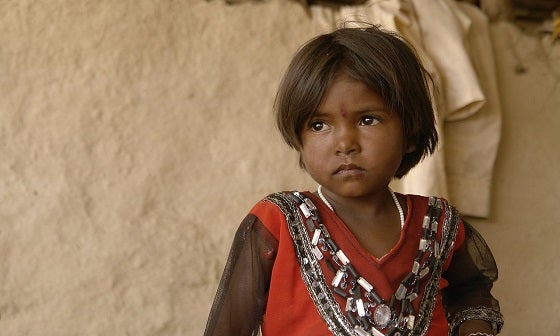
| Title: | The Case for Early Childhood Intervention in Education |
| Author/s: | Dipinder S Randhawa |
| Abstract: | Cross-country research in recent years has confirmed what many parents believed for years that teaching children early in life through exposure to stimuli through play and observation cultivates instincts to explore and learn. Research indicates that early childhood education yields the highest returns on investment in any segment of education. It can help mitigate socioeconomic inequalities and enrich prospects for economic advancement. |
| Date: | 6 December 2019 |
| Read More |
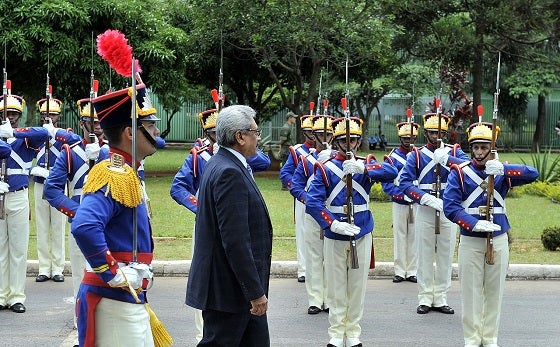
| Title: | Sri Lanka’s Presidential Election 2019: A New President and the Politics of Balances |
| Author/s: | Asanga Abeyagoonasekera |
| Abstract: | The recent Sri Lankan election witnessed the Rajapaksa brothers – Gotabaya and Mahinda – coming to power. Gotabaya, former secretary of defence and a technocrat with little political experience, was elected president while Mahinda, former two-time president who ended the protracted civil war during his term 10 years ago, was sworn in as prime minister. The new president faces the twin internal challenges of balancing nationalist and liberal values and introducing a new political culture with emphasis on meritocracy and technocracy. On external relations, past Sri Lankan leaders have leaned towards a single power for economic support and this superseded everything else. It will be interesting to see if Gotabaya’s foreign policy will be different from that of his brother and the other leaders, and if he will be able to balance the triple sphere of influence – India, China and the United States – with his ‘neutral’ foreign policy focus. |
| Date: | 3 December 2019 |
| Read More |

| Title: | A Tale of Two Cities: Singapore and Kolkata Past and Present |
| Date: | 1 December 2019 |
| Read More |
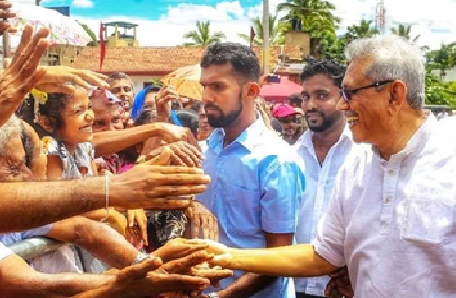
| Title: | Sri Lanka’s Presidential Election 2019: Gotabaya Rajapaksa’s Likely Impact on Social Cohesion in Sri Lanka |
| Author/s: | La Toya Waha |
| Abstract: | As the new president of Sri Lanka, Gotabaya Rajapaksa’s policies will have a great impact on the development of the country. His figure, for many reasons, is a controversial one. Looking at his past and at his promises during the election campaign, the paper seeks to investigate the impact Gotabaya’s presidency might have on the social cohesion in Sri Lanka. |
| Date: | 28 November 2019 |
| Read More |
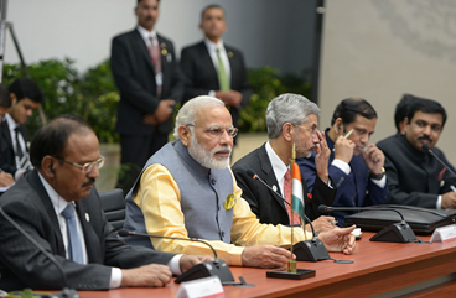
| Title: | Beyond Non-alignment: S Jaishankar’s Reflections on Indian Foreign Policy |
| Author/s: | Chilamkuri Raja Mohan |
| Abstract: | A lecture on the evolution of Indian foreign policy by India’s External Affairs Minister, S Jaishankar, on 14 November 2019 is likely to go down as an important marker in the national and international debate on independent India’s international relations. In calling for a serious audit of the nation’s foreign policy record, questioning much of the conventional wisdom and emphasising greater risk-taking, Jaishankar provides for a better understanding of the current dynamic shaping Prime Minister Narendra Modi’s foreign policy, especially Delhi’s new self-assurance in engaging the major powers. |
| Date: | 25 November 2019 |
| Read More |
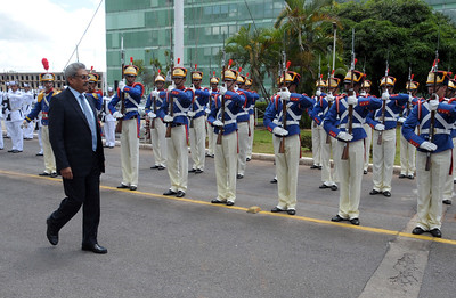
| Title: | Sri Lanka’s Presidential Election 2019: Gotabaya’s World |
| Author/s: | S D Muni |
| Abstract: | Gotabaya Rajapaksa has won the Sri Lankan presidency by raising domestic issues of internal security governance. Foreign policy was generally left out of the electoral contest except for stray references that he would restore normal relations with China. Nonetheless, the new president faces a difficult challenge of harmoniously balancing the intensely competing stakeholders in the Indo-pacific region where Sri Lanka is strategically located. The Rajapaksas have enjoyed very close relations with China and Gotabaya would continue to keep China in good humour by encouraging growing Chinese investments in Sri Lanka. However, he needs to take care in keeping strategic underpinnings of Chinese projects away so as not to offend sensitivities of other stakeholders in the region like India and the United States (US). Restraining China strategically may not be easy because China will insist on its pound of strategic flesh for the huge investments made. India has begun with a positive note on Gotabaya and the bilateral mutual understanding will flourish following his first foreign state visit to New Delhi this month. India is also expected to go more than half the way in accommodating the new Colombo regime by dropping issues like implementation of 13th Amendment. Gotabaya has deep bonds with the US and would be responsive to its strategic concerns in the region, though he may not oblige the Western friends on issues like post 2009 war human rights and domestic freedom. |
| Date: | 22 November 2019 |
| Read More |
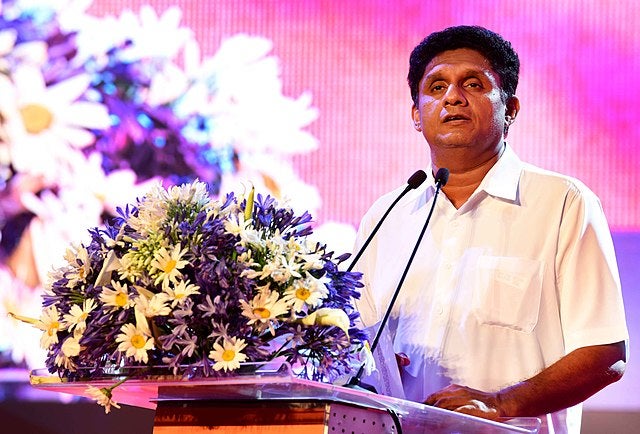
| Title: | Sri Lanka’s Presidential Election 2019: The Prospect of a Sajith Premadasa Victory |
| Author/s: | Roshni Kapur and Chulanee Attanayake |
| Abstract: | Sajith Premadasa is the presidential nominee for the United National Party (UNP), which is part of the National Democratic Front coalition. The UNP, despite major electoral defeats for years, has managed to survive as the biggest party in Sri Lanka’s political arena. Its poor performance under the Yahapalana (good governance) government, coupled with political infighting, though, has disenchanted many UNP supporters. Against this backdrop, Premadasa faces a difficult task in persuading voters that the UNP deserves a second chance in the upcoming election. |
| Date: | 15 November 2019 |
| Read More |
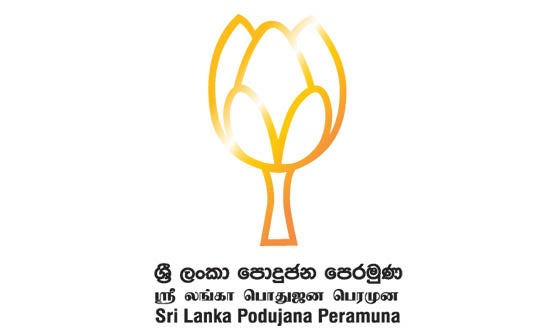
| Title: | Sri Lanka’s Presidential Election 2019: Sri Lanka Podujana Peramuna a Key Contender |
| Author/s: | Chulanee Attanayake and Roshni Kapur |
| Abstract: | The Sri Lanka Podujana Peramuna (SLPP) has nominated Gotabaya Rajapaksa, former Defense Secretary as its presidential candidate. Despite Gotabaya’s recent introduction to mainstream politics and the SLPP being a relatively new party they have emerged as key contenders who could resonate with voters. Amidst this backdrop this paper analyses the factors that make Gotabaya a frontrunner despite his controversies. |
| Date: | 15 November 2019 |
| Read More |
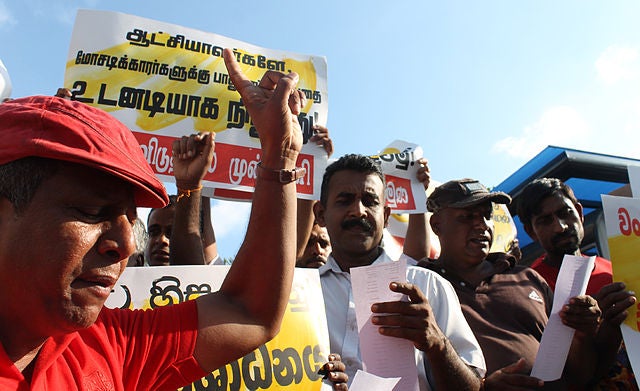
| Title: | Sri Lanka’s Presidential Election 2019: Will the Janatha Vimukthi Peramuna be an Alternative Force? |
| Author/s: | Roshni Kapur, Chulanee Attanayake |
| Abstract: | After 20 years, the Janatha Vimukthi Peramuna (JVP) has nominated a candidate under the National People’s Power alliance. The JVP believes that it can be an alternative force to challenge the two main political parties. Despite its ambitious electoral promises, the JVP is unlikely to be a third contender during the upcoming presidential elections. |
| Date: | 5 November 2019 |
| Read More |
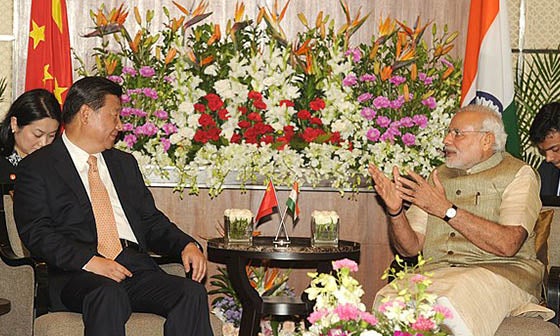
| Title: | Noise over Substance – Modi-Xi Summit and Sino-Indian Relations |
| Author/s: | Yogesh Joshi |
| Abstract: | Taking the Wuhan process further, Chinese President Xi Jinping and Indian Prime Minister Narendra Modi met for their second informal summit in India’s coastal town of Mamallapuram on 11 and 12 October 2019. Through the mechanism of such informal dialogue, Modi and Xi have demonstrated to the world that India and China are willing to engage with each other. High on optics, both Wuhan and Mamallapuram have, however, fallen short in reaching a substantive breakthrough in Sino-Indian relations. |
| Date: | 24 October 2019 |
| Read More |

| Title: | Informal Summit: Smart Diplomacy to Address China-India Distrust |
| Author/s: | Ren Yuanzhe, Atmakuri Lakshmi Archana |
| Abstract: | For decades, India and China have had fundamental underlying trust issues such as the border dispute, Chinese growing influence in India’s neighbouring countries, India’s trade deficit with China and finally China’s “all-weather” relationship with Pakistan. Amidst the deep distrust, there is willingness from both sides to work on ways to improve relations through the unique mechanism of informal meetings. Indian Prime Minister Narendra Modi hosted Chinese President Xi Jinping for the Second Informal Summit in Mammallapuram, Chennai from 10-11 October 2019. |
| Date: | 21 October 2019 |
| Read More |
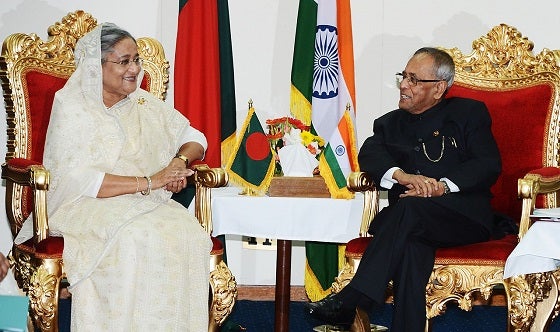
| Title: | Hasina’s Visit to India: Few Issues Remain |
| Author/s: | Amit Ranjan |
| Abstract: | The Prime Minister of Bangladesh Sheikh Hasina had a successful visit to India; however, it seems that reassurances given by India on the question of the deportation of people excluded in the final NRC list, who would go through the subsequent legal process before being finally declared as ‘illegal’ immigrants, has not fully convinced the Bangladeshi side. Likewise, on India’s position on the Rohingya issue, which is looked as a departure from the past, ambiguity remains. Finally, as the Teesta water agreement remains inconclusive, the two countries are focussing on six smaller rivers. |
| Date: | 15 October 2019 |
| Read More |
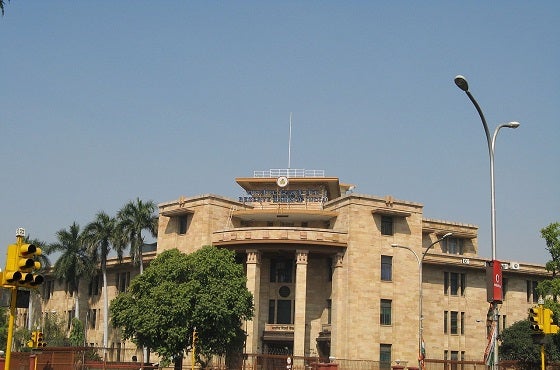
| Title: | Bank Consolidation: Necessary but Inadequate |
| Author/s: | Dipinder S Randhawa |
| Abstract: | The consolidation of public sector banks is a much-needed step. However, the problems facing banking in India – ineffective governance, pervasive intervention by politicians in lending decisions, and an inability to resolve the mounting volume of non-performing loans – are much more severe and cannot be tackled through bank mergers alone. Public sector banks in India need deeper structural reforms to help revitalise growth in the economy. |
| Date: | 15 October 2019 |
| Read More |
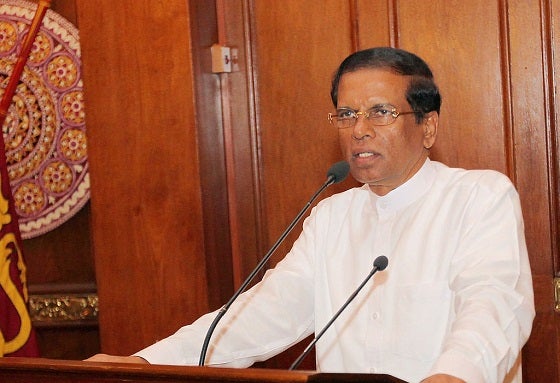
| Title: | Sri Lanka’s Presidential Elections: Initial Observations |
| Author/s: | Chulanee Attanayake and Roshni Kapur |
| Abstract: | The forthcoming presidential elections in Sri Lanka would see a plethora of key issues discussed during the campaign; the foremost being national security and economic development. |
| Date: | 24 September 2019 |
| Read More |

| Title: | 579: The Battle over India’s Data Policy Framework: What Gives? |
| Author/s: | Karthik Nachiappan |
| Abstract: | Debates related to data localization are front and centre in India. India’s draft data legislation – the Personal Data Protection Bill that centred on localization with provisions extended to the protection of personal data appears to be on the cusp of being altered. This paper analyses how considerations at three different levels – global, national and subnational affect discussions on the newly proposed data bill that must reconcile factors related to security, innovation and accessibility. How Indian officials resolve this knot will give us an idea of the values underpinning India’s approach toward technology policies. |
| Date: | 4 September 2019 |
| Read More |

| Title: | 578: V4-India Cooperation: Exploring the Potential of a New Europe |
| Author/s: | Patryk Kugiel |
| Abstract: | The recent visit of Indian Minister of External Affairs Dr S. Jaishankar to Hungary and Poland in August 2019, sheds more light on India’s engagement with central Europe, the region that used to be off the radar of Indian foreign policy over the last 30 years1. This paper focuses on four countries in the region: Czech Republic, Hungary, Poland and Slovakia, which form the Visegrad Group (V4). It examines the potential for cooperation in the economic, political and strategic domains to show why the region does matter to India. It suggests that in order to boost cooperation India may engage Visegrad countries in a V4+ mechanism at the soonest. |
| Date: | 30 August 2019 |
| Read More |
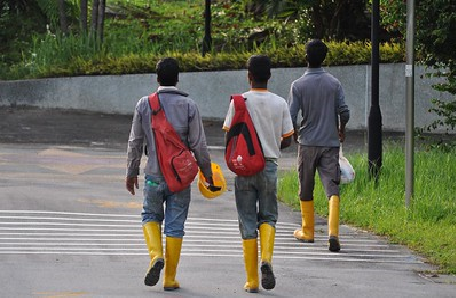
| Title: | The Radicalisation of Bangladeshi Migrant Workers in Singapore |
| Author/s: | Nazneen Mohsina and Amit Ranjan |
| Abstract: | This discovery of radicalised individuals among blue-collar Bangladeshi migrant workers in Singapore in 2015 and 2016 raises the question of why and how some individuals from this demographic group may embrace extremist ideologies. This paper explores the factors for their radicalisation and argues that various dynamics in the global and domestic environments of these workers interact and align to influence their radicalisation. |
| Date: | 22 August 2019 |
| Read More |
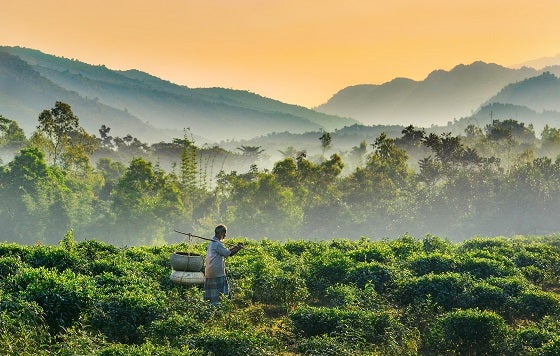
| Title: | Bangladesh: Growth at the Cost of the Environment? |
| Author/s: | Amit Ranjan |
| Abstract: | Bangladesh is moving ahead in terms of economic growth. It is being projected that with the current rate of growth, by 2030, Bangladeshis will be richer than the average Indian in terms of per capita income. However, the environment remains a concern for the country. Air pollution is high, waste generation is increasing, and most of the available water is polluted. |
| Date: | 8 August 2019 |
| Read More |
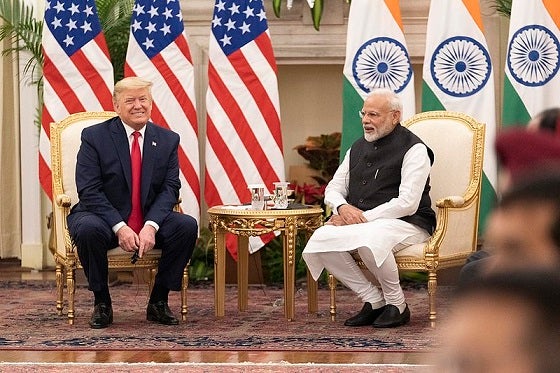
| Title: | India’s Tariffs and Implications for Indo-US Trade Prospects |
| Author/s: | Amitendu Palit and Deeparghya Mukherjee |
| Abstract: | This paper compares India’s tariffs with those of some of the world’s other large emerging market developing countries to ascertain if Indian tariffs are indeed among the highest. The countries include Russia, Brazil, Mexico, China, Indonesia and South Africa. Along with India, these countries are members of G20 – the world’s most influential grouping of major economies – and are large emerging market economies. Some of these, such as Brazil, Indonesia and South Africa, continue to be beneficiaries of US GSP, while Mexico is part of the USMCA (United States-Mexico-Canada Agreement) along with Canada. US perceptions regarding Indian tariffs are likely to be determined in relation to those in these economies, apart from China and Russia. |
| Date: | 1 August 2019 |
| Read More |

| Title: | Indian Start-ups Relocating to Singapore: Who Benefits? |
| Author/s: | Dipinder S Randhawa |
| Abstract: | A significant cohort of start-ups from India has relocated to Singapore and elsewhere. This has raised concerns in some quarters in India about the ‘loss’ of business and investment to overseas start-up hubs. Are these concerns valid? Who benefits when start-ups relocate? |
| Date: | 23 July 2019 |
| Read More |
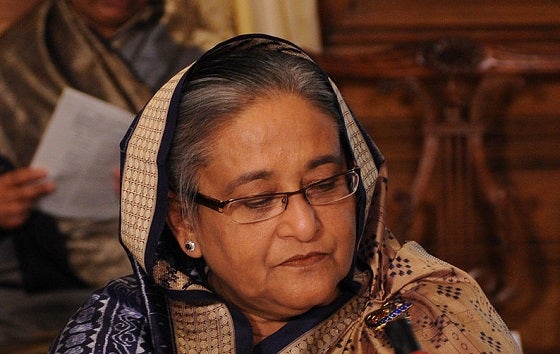
| Title: | Prime Minister Sheikh Hasina in China: Bilateral, Regional and Global Implications |
| Author/s: | Iftekhar Ahmed Chowdhury |
| Abstract: | Bangladesh’s Prime Minister Sheikh Hasina concluded a visit to China in the first week of July 2019. By all accounts, it was a successful visit. Bangladesh committed itself to the Belt and Road Initiative, as well as to the strategic partnership, at which level the Bangladesh-China relationship had been raised. The Chinese reciprocated with comparable assurances of support. At the same time, as a result of the visit, the need for Bangladesh to navigate carefully between the cooperation with China and the relations with India and the United States came into broader relief. This calls for skilful diplomacy in the times ahead. |
| Date: | 18 July 2019 |
| Read More |
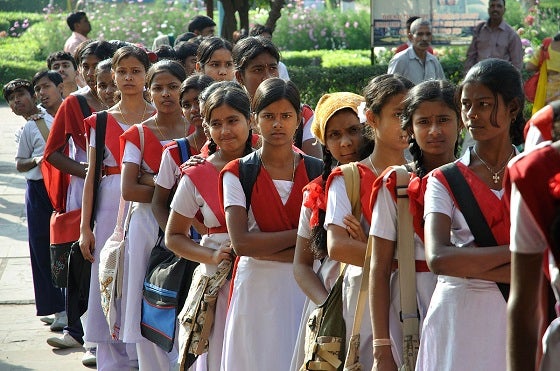
| Title: | The Crisis in India’s Primary Education |
| Author/s: | Dipinder S Randhawa |
| Abstract: | Findings of the 2018 Annual Status of Education Report highlight the crisis confronting primary education in India. The poor results raise serious concerns about the preparedness of India’s youth for subsequent education and the workplace. Why are India’s children not learning despite spending years in school? What measures can be undertaken to address the huge learning gap? |
| Date: | 17 July 2019 |
| Read More |
| Title: | Vernacular Social Media and the 2019 General Elections |
| Author/s: | John Joseph Vater,Ronojoy Sen |
| Abstract: | The use of social media by all political parties in the 2019 Indian general elections has had a transformative effect on political campaigning in India. However, much of the focus has been on English social media platforms. This paper traces the use of regional language social media networks by political parties and the circulation of fake news during the elections. |
| Date: | 16 July 2019 |
| Read More |

| Title: | Bitcoins and Fiat Currencies: India’s Concerns and Implications |
| Author/s: | Deeparghya Mukherjee |
| Abstract: | As most of the developed world embraces the idea of crypto assets and cryptocurrencies, emerging economies like India have been debating the path they should take to accommodate the newest advances in financial technology into the financial system. This paper attempts to analyse the bitcoin as the most popular cryptocurrency, its major features in comparison with fiat currencies, the stance of India thus far and the possible path ahead. |
| Date: | 6 July 2019 |
| Read More |
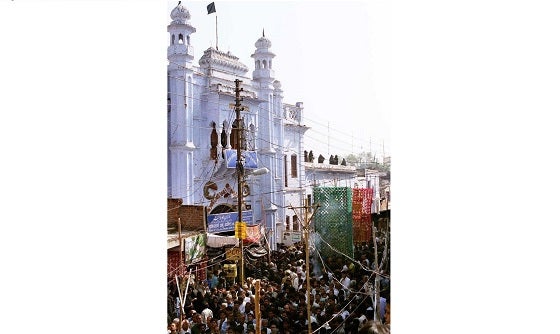
| Title: | Muslims and an Inclusive India under Modi 2.0 |
| Author/s: | Nazneen Mohsina, Mustafa Izzuddin, Tahira Namreen |
| Abstract: | The landslide victory of the Bharatiya Janata Party (BJP) in India’s recent parliamentary elections and the re-election of Narendra Modi as Prime Minister have, once again, cast a spotlight on the plight of Muslims in India. Although Muslim fears of a BJP-led government are not unfounded, Modi has been sending out positive signals in his outreach to them. However, Modi needs to match his rhetoric with action during his second term if he is to live up to his promise of building a strong and inclusive India. |
| Date: | 5 July 2019 |
| Read More |

| Title: | Lessons from the Sri Lankan Easter Sunday Tragedy |
| Author/s: | Mustafa Izzuddin and Chulanee Attanayake |
| Abstract: | The Easter Sunday tragedy in Sri Lanka on 21 April 2019 brought with it important domestic and international lessons. There is also a China focus on developments in Sri Lanka, primarily because of Beijing’s geopolitical interest in the Indian Ocean. Countries in South Asia are also keeping a close watch as regional neighbours because of the resurgence of the Islamic State in Iraq and Syria and, more importantly, a stronger and more united Sri Lanka bodes well for regional stability in the South Asian region. |
| Date: | 29 May 2019 |
| Read More |
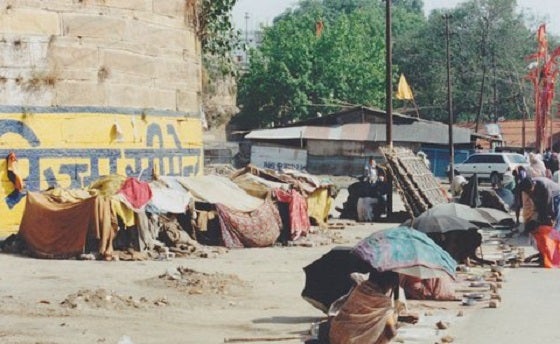
| Title: | Universal Basic Income in India: The Rationale and Challenges |
| Author/s: | Dipinder S Randhawa |
| Abstract: | Interest in a Universal Basic Income (UBI) in India grew with the publication of a chapter in the 2016-17 Economic Survey. A UBI is increasingly deemed to mitigate the effects of endemic poverty, with the potential to facilitate economic mobility and, eventually, development. This paper considers the challenges a UBI scheme is likely to encounter in India. |
| Date: | 28 May 2019 |
| Read More |
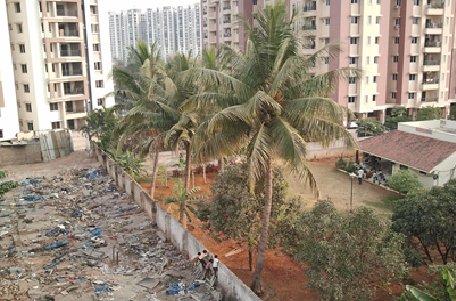
| Title: | Universal Basic Income: An Idea Whose Time Has Come? |
| Author/s: | Dipinder S Randhawa |
| Abstract: | Over the past three decades, inequality has grown across the developed as well as the developing world. Today, it is widely acknowledged as one of the most serious problems facing the global economy. Bleak prospects for job creation, falling real wages and increasing automation are all indicative of diminishing prospects for economic mobility. The idea of a Universal Basic Income (UBI) is to provide an unconditional periodic grant to all citizens to enable them to lead sustainable lives, while providing them the freedom to make choices that help cope with growing uncertainties in labour markets. This is the first of two insights on this theme. The second focusses on prospects for a UBI in India. |
| Date: | 28 May 2019 |
| Read More |
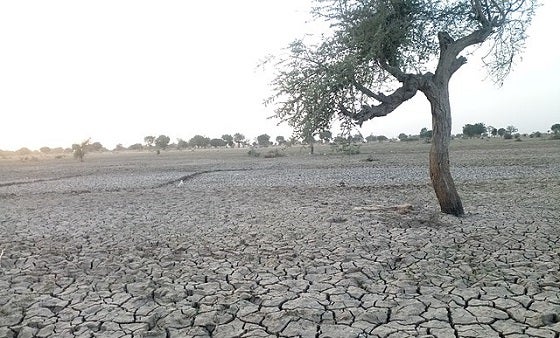
| Title: | Environmental Degradation: Never an Election Issue in India |
| Author/s: | Amit Ranjan |
| Abstract: | As a result of environmental pollution, a large number of people die each year in India. In spite of that, environment-related issues and the impending threats due to environmental degradation hardly find any mention in major public discourses in the country. In the 2019 general elections, as in the case in the past, the political parties have provided space for environment-related issues in their manifestoes but almost none of their leaders have spoken about it in their election rallies. Beyond the political leaders, the environment also does not seem to be an important issue for the people and the media during the elections. |
| Date: | 22 May 2019 |
| Read More |
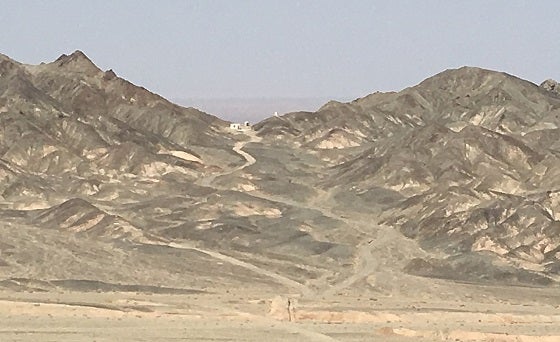
| Title: | Afghanistan’s Future: How can Pakistan help? |
| Author/s: | Touqir Hussain |
| Abstract: | This paper examines the prospects of peace and stability of Afghanistan after the expected withdrawal of foreign forces from an unsuccessful war lasting 18 years. In fact, Afghanistan’s troubles predate this war. For more than four decades, it has only seen strife and tension, while struggling with the building of modern political institutions and structure of governance reflecting its historical state and nation-building challenges. The Taliban were just one among many of these challenges the current war could not resolve. The United States (US) and the Taliban are now talking to end the war. However, for a lasting solution for Afghanistan, the countries in the region and the US have to remain committed for Afghanistan’s sake and for their own sake. Pakistan has a crucial role to play to put pressure on the Taliban to share power. It will not do so without a new relationship with Afghanistan that accommodates its security and strategic interests. And Washington must remain engaged with both Afghanistan and Pakistan. It should also develop some understanding with India, China and Russia. Without these arrangements, the Americans may leave but the conflict could continue with a different name. |
| Date: | 20 May 2019 |
| Read More |
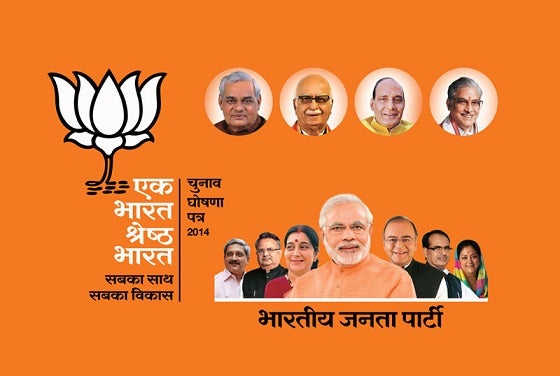
| Title: | BJP Banking on Fortress Gujarat but Faces Challenge in Maharashtra |
| Author/s: | Nalin Mehta |
| Abstract: | The two western Indian states of Gujarat and Maharashtra together account for 74 out of the 543 seats in the Lok Sabha (Lower House of Parliament). The Bharatiya Janata Party (BJP) swept all 26 Gujarat Lok Sabha seats in 2014. In 2019, Gujarat, the home ground of Prime Minister Narendra Modi and the BJP President, Amit Shah, remains a major prestige battle. The Congress is counting on making inroads into the state after doing well in the assembly elections in December 2017 but the BJP seems to have recovered some ground here since then. Maharashtra, with 48 Lok Sabha seats, sends the second-highest contingent of members of parliament to the Lok Sabha after Uttar Pradesh (UP). Like in UP, the BJP-led National Democratic Alliance is facing a tough battle in Maharashtra with a renewed Nationalist Congress Party leading the United Progressive Alliance’s charge. It has emerged as a major battleground in 2019 whose result could be decisive for government formation in Delhi. This paper summarises the political outlook in both these western Indian states and examines the key factors at play. |
| Date: | 14 May 2019 |
| Read More |

| Title: | India and the South Pacific |
| Author/s: | Anil Wadhwa |
| Abstract: | The issues faced by the Pacific Island States have consistently shaped India’s policy towards the region, which has been in the form of aid, grants, soft loans, and capacity building over the past decades, although at a modest level. This paper looks at the opportunities and challenges for India to deepen its engagement with the region. |
| Date: | 29 April 2019 |
| Read More |
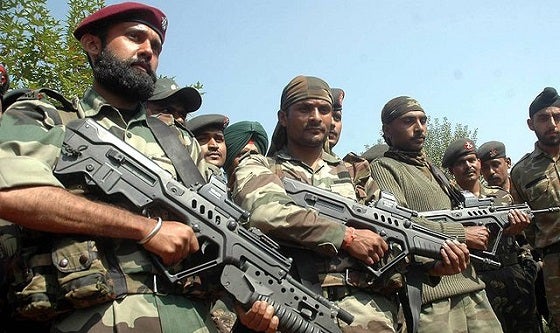
| Title: | Decoding India’s Strategic Weapons Capabilities |
| Author/s: | Yogesh Joshi |
| Abstract: | India’s recent Anti-Satellite weapons (ASAT) test has extended its strategic deterrent into outer space. Built upon India’s Ballistic Missile Defence (BMD) program, an ASAT capability allows India to bridge the gap with China in the weaponisation of outer space but also makes New Delhi a major stakeholder in any future negotiations over arms control in outer space. This paper outlines India’s ASAT capabilities, underlines the similarities and differences between its BMD and ASAT program and highlights the changes in India’s approach to strategic weapons systems and what it means for India’s emergence as a great power. |
| Date: | 23 April 2019 |
| Read More |
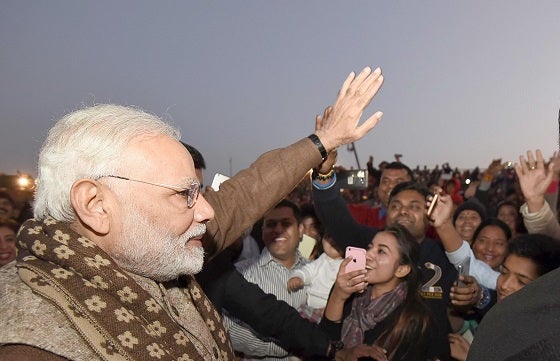
| Title: | 560 : India’s Hindi Heartland Key to General Elections |
| Author/s: | Nalin Mehta |
| Abstract: | With Indian Prime Minister Narendra Modi seeking a second term in India’s general elections, scheduled between April and May 2019, the outcome of the poll battle will depend a great deal on how 10 states in the country’s Hindi-speaking heartland in north and central India vote. Modi’s historic win in 2014 as the first leader in three decades to win a full majority in India’s lower house of Parliament, the Lok Sabha, was powered by unprecedented gains for his Bharatiya Janata Party (BJP) in these states. The BJP won over 84 per cent of seats in the Hindi heartland in that election. This paper summarises the political outlook of India’s Hindi heartland in 2019, examines key factors at play in each of its constituent states and puts together cumulative data from the various state-wise opinion polls and assembly elections to illustrate how the Indian political chessboard has shifted and the likely prospects as India heads into its national election. |
| Date: | 11 April 2019 |
| Read More |
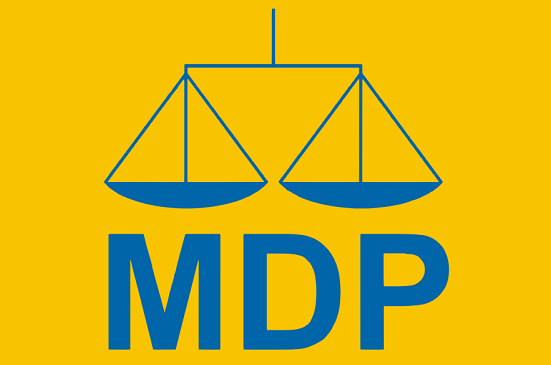
| Title: | 559 : A Comprehensive Election Victory: What Next for the Maldivian Democratic Party? |
| Author/s: | Amit Ranjan |
| Abstract: | The Maldivian Democratic Party (MDP), led by the President of the Maldives, Ibrahim Mohamed Solih, swept to victory in the 6 April 2019 parliamentary elections. A majority representation in the Parliament will help the government take some important decisions which may re-shape the country’s domestic and foreign policies, and transform its debt-ridden economy. Some of these domestic and economic policies may redefine the MDP’s political relationships with its coalition partners, especially, the Jumhooree Party. |
| Date: | 10 April 2019 |
| Read More |

| Title: | 558 : Saudi Arabia’s Rising Profile in South Asia |
| Author/s: | Omair Anas |
| Abstract: | Saudi Arabia is faced with its most serious challenge, to transform and reconfigure an old, religiously legitimised, rent-dependent, and West-dependent for security, Kingdom into a diversified economy, popularly legitimized and sensitive to the decline of the West and the rise of the rest. This requires a multi-pronged strategy that includes rewriting its South Asian engagement beyond the issues of oil and expatriates. The Saudi Crown Prince Muhammad Bin Salman’s recent Asia visit aimed at securing greater security and economic partnership, an objective he cannot achieve without recognizing South Asia as being part of a post-American global system, defined by the SCO and the rise of the BRICS countries. The article explains the domestic and regional determinants of Saudi Arabia’s quest for a new South Asia Policy and the gradual rise of its South Asia profile. |
| Date: | 9 April 2019 |
| Read More |

| Title: | 557 : Elections in Andhra Pradesh – Issues and Possible Scenarios |
| Author/s: | Ronojoy Sen, Amitendu Palit and Diego Maiorano |
| Abstract: | Andhra Pradesh is one of two major India states where national and state elections will be held simultaneously on 11 April 2019. Past results seem to suggest that the voters tend to choose the same party in both national and state polls if they are held simultaneously. Opinion polls and ground level reports indicate that the opposition YSR Congress (YSRC) has the edge against the ruling Telugu Desam Party (TDP). Anti-incumbency and the inability of the current Chief Minister, Chandrababu Naidu, to get a special package for Andhra Pradesh are some of the factors going against the TDP. A government of the YSRC will continue with the development of Amaravati, but could revisit some of the projects associated with it. |
| Date: | 4 April 2019 |
| Read More |

| Title: | 556 : Japan in the Infrastructure Sector of Northeast India |
| Author/s: | Rupakjyoti Borah |
| Abstract: | In the last couple of years, Japan has been investing in India’s north-eastern region in a big way. This paper analyses the growing cooperation between Japan and India in the infrastructure sector in Northeast India and the challenges which both the countries face in this arena. |
| Date: | 29 March 2019 |
| Read More |
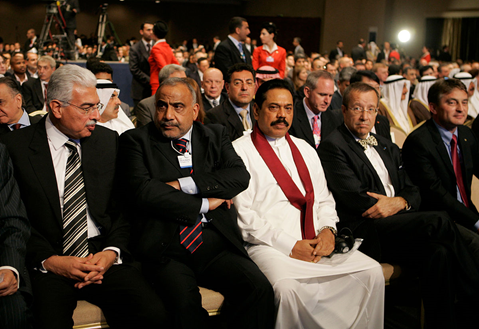
| Title: | 555 : National Budget Sri Lanka: A Budget to Empower People |
| Author/s: | Chulanee Attanayake |
| Abstract: | Sri Lanka’s 2019 Budget is significant due to several reasons. Before it was presented, the Budget was predicted to be a populist one as 2019 is an election year. Surprisingly, the Finance Minister presented a budget which is balanced; i.e. which continues its liberal economic policies as well as demands of the public. This paper analyses some key features of Budget 2019. |
| Date: | 26 March 2019 |
| Read More |
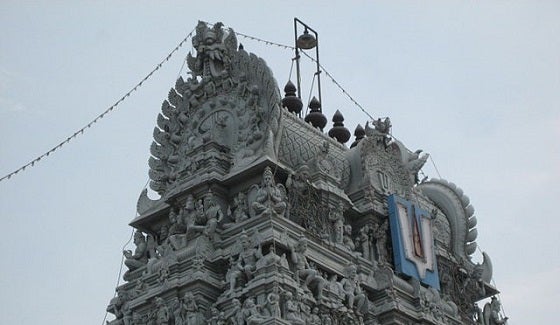
| Title: | 554 : Sabarimala: Controversy over Women’s Access to the Temple |
| Author/s: | Silvia Tieri and Emma J. Flatt |
| Abstract: | In India, the two practices of menstrual taboo and gender-selective access to places of worship come together, as women are prevented from accessing certain shrines by virtue of the menstruating nature of their body. Recently the Supreme Court of India ordered the lifting of a legal ban, which prevented women of menstruating age from entering a famous Hindu temple. The Court’s judgement endorsed feminist activists’ claim that the ban is discriminatory against women, hence anti-constitutional. On the other hand, religious and political institutions and devotees (including women) maintain that the ban is a canonized religious custom, which must be observed out of respect for the religious sentiment of Hindus. The judgement divided public opinion and fuelled a wave of protests, often backed by opposition parties; it is also likely to have important consequences for the future of management of religious affairs in India. |
| Date: | 26 March 2019 |
| Read More |
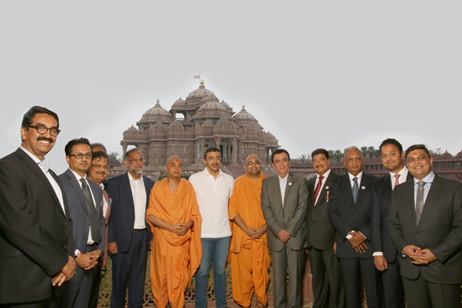
| Title: | 553 : Reversing 1979: Gulf Reforms and South Asia |
| Author/s: | Chilamkuri Raja Mohan, Nazneen Mohsina |
| Abstract: | Recent reforms in Saudi Arabia and elsewhere in the Arabian Peninsula have drawn worldwide interest. But South Asia has devoted little attention to the internal developments in the Peninsula that could have long term implications for the region. Given the historic dynamics between the subcontinent and the Arabian Peninsula, this paper suggests that the potential evolution of the Arabian Peninsula towards political and religious moderation could help counter the many negative trends in South Asia. The paper reviews the past negative impact of the Arabian Peninsula’s developments on South Asia since the tumultuous events of 1979 and looks at the new promise of its reversal and its potential consequences for South Asia. |
| Date: | 25 March 2019 |
| Read More |
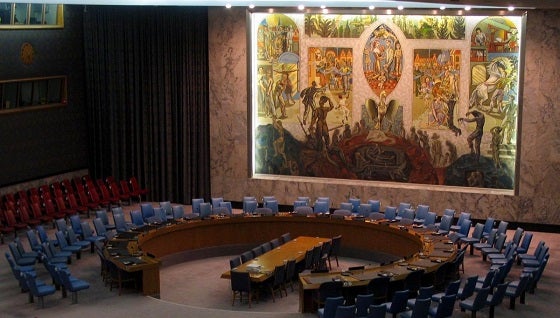
| Title: | 552 : India’s Race For The Security Council: Will She Reach The Finishing Line? |
| Author/s: | Iftekhar Ahmed Chowdhury |
| Abstract: | The essay focuses on India’s quest for a permanent seat in the Security Council. While analysing the debate and diplomacy in this connection, the essay is crafted around a recent book by an Indian diplomat, Dilip Sinha, entitled: Legitimacy of Power: The Permanence of Five in the Security Council. |
| Date: | 20 March 2019 |
| Read More |
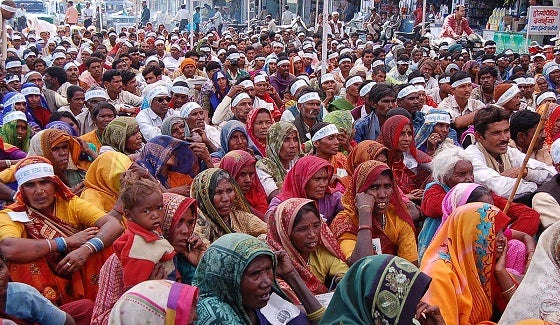
| Title: | 551 : Attaining Entitlement: Women Farmers and Land Rights |
| Author/s: | Vani Swarupa Murali and Emma J. Flatt |
| Abstract: | From 29-30 November 2018, at the peak of the Rabi cropping season, tens of thousands of farmers from across India forewent their daily wages to take part in the Dilli Challo (On to Delhi) or Kisan Mukti (Farmer’s Liberation) march. This march, organised by the All India Kisan Sangharsh Coordination Committee (umbrella body of farmers and agricultural workers) saw farmers pushing for two main bills to be passed – the Farmers’ Freedom from Indebtedness Bill 2018 and The Farmers’ Right to Guaranteed Remunerative Minimum Support Prices for Agricultural Commodities Bill 2018.1 Within the march, largely unnoticed by the media, was a sizeable contingent of women farmers demanding the passing of a separate bill: the Women Farmers’ Entitlement Bill. Whilst they did not receive as much coverage as the men, this paper argues that the women’s fight warrants just as much attention as the men’s. |
| Date: | 19 March 2019 |
| Read More |

| Title: | 550 : Politicisation of Data Under the Modi Regime |
| Author/s: | Diego Maiorano |
| Abstract: | India has built, over the last few decades, a strong reputation regarding the credibility and availability of data. However, under the Modi regime, there have been several instances of data manipulation. This article shows how the government has been delaying, inflating and withholding access to public data. This could have severe repercussions in terms of India’s international reputation, democratic accountability and policy design. |
| Date: | 18 March 2019 |
| Read More |
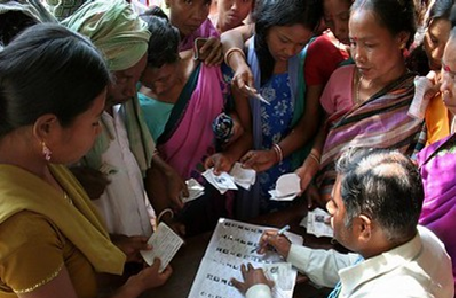
| Title: | 549 : Why Alliances could matter in India’s General Election |
| Author/s: | Ronojoy Sen |
| Abstract: | In the run up to the Indian general election, scheduled to be held over April and May 2019, political parties are busy firming up alliances. Of the two national parties, the ruling Bharatiya Janata Party (BJP) has been much quicker off the blocks compared to the Indian National Congress. Part of the reason behind the BJP’s urgency is the expectation that it might not be able to get a majority on its own in the Lok Sabha (lower house of parliament). The Congress, in contrast, has been bogged down by seat sharing details. Alliances have been struck by regional parties in several states, too, with the Samajwadi Party-Bahujan Samaj Party tie-up in Uttar Pradesh being the most significant. |
| Date: | 18 March 2019 |
| Read More |

| Title: | 548 : Can Minimum Income Schemes and Loan Waivers help Farmers in India? |
| Author/s: | Amitendu Palit and Vani Swarupa Murali |
| Abstract: | The Indian Prime Minister Narendra Modi launched the PM-Kisan Samman Nidhi Scheme on 24 February 2019. Involving an expenditure of ₹750 billion (S$15 billion), the scheme would provide a minimum income of ₹6,000 (S$117) per year to around 120 million small and marginal farmers. The scheme has been criticized by many as a populist effort by the Modi government for securing the votes of farmers. As this paper argues, Indian political parties are shying away from implementing policies that could have helped in increasing farmer incomes. Efforts like amending state Agricultural Produce Marketing Committee (APMC) Acts and encouraging large investments in food supply chains can help farmers in reaching wider markers and getting higher prices. Unfortunately, these are being avoided in favour of politically appealing, but economically suboptimal options, like loan waivers and minimum income. |
| Date: | 18 March 2019 |
| Read More |

| Title: | 547 : Understanding India’s Reluctance at the WTO E-commerce Talks |
| Author/s: | Dipinder S Randhawa |
| Abstract: | On 25 January 2019, a group of 75 countries announced that they would launch informal discussions at the WTO to formulate trading norms and regulations for e-commerce trade. Despite its professed faith in multilateral discussions, why has India been reluctant to participate in a new round of discussions on e-commerce? |
| Date: | 18 March 2019 |
| Read More |
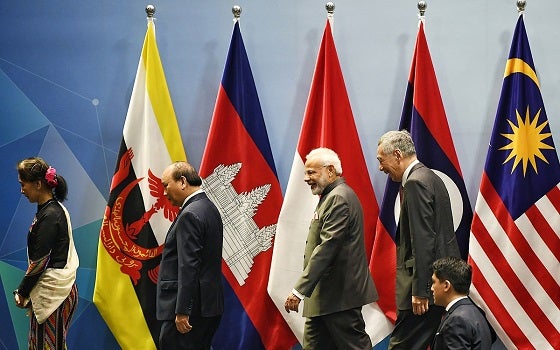
| Title: | 546 : A Dichotomy of Values in Foreign Policy |
| Author/s: | Iftekhar Ahmed Chowdhury |
| Abstract: | This paper argues that while western and eastern notions of values in foreign policy might apparently differ, dichotomising relevant thoughts and policies into silos would be unrealistic. In a globalised world, borders between the two are tending to disappear. Today, while the natural predilection of a state actor in the global scene may be to try and shape its external environment in accordance with its own historical and cultural experiences, as well as precepts to advance its perceived interests, there would be restraints of various kinds, including size and capabilities. |
| Date: | 17 March 2019 |
| Read More |

| Title: | 545 : Parliamentary Elections and Challenges in the Maldives |
| Author/s: | Amit Ranjan |
| Abstract: | Favourable results in the upcoming parliamentary elections in the Maldives will allow President Ibrahim Mohamed Solih’s government to take some strong measures to reinvigorate the country’s economy, which has been pushed into debt by former President Abdulla Yameen (2013-2018). Apart from the economy, the Yameen government had also neglected the country’s old allies by shifting the country’s foreign policy to favour new-found friends. This paper looks at the rift within the ruling coalition, and the present status of the Maldives’ economy and foreign policy. |
| Date: | 17 March 2019 |
| Read More |
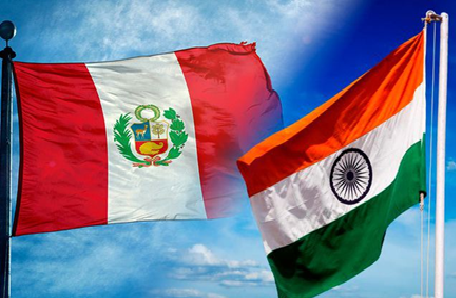
| Title: | 544 : India and Peru FTA: Issues and Concerns |
| Author/s: | Rahul Choudhury |
| Abstract: | India and Peru met on 11 March 2019 to continue their ongoing negotiations on a free trade agreement (FTA) for goods and services. The proposed FTA will open avenues for India to penetrate into the Latin American market using Peru as a commercial base while Peru will have access to the Indian market, which has more than a billion potential consumers. This paper analyses the possible benefits for both economies arising from this agreement. |
| Date: | 17 March 2019 |
| Read More |
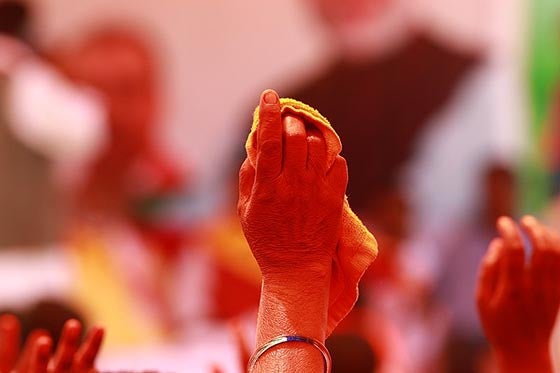
| Title: | 543 : Indian General Elections Announced |
| Author/s: | Vinod Rai |
| Abstract: | The election schedule to constitute the 17th Lok Sabha was announced on 10 March 2019. Indians will yet again go to the ballot box, to elect a new government. The entire mammoth exercise will be spread over seven phases with counting to be done on 23 May 2019. We analyse the thought process behind setting up a unitary body for the legislative bodies at the central and state levels, the use of the electronic voting machine, the efficacy of the model conduct and the attempt to have simultaneous elections in the states and the centre. |
| Date: | 13 March 2019 |
| Read More |
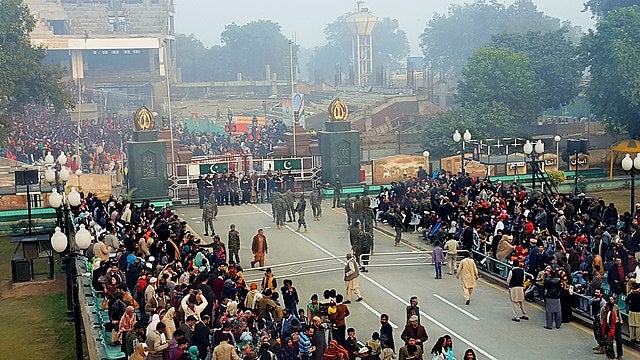
| Title: | 542 : India-Pakistan Standoff: What We Know, What We Do Not Know and What They Want Us to Know |
| Author/s: | Iqbal Singh Sevea |
| Abstract: | Both India and Pakistan have indulged in a media and information battle with government and military officials actively utilizing various forms of media – including newspapers, news channels, Twitter and Facebook – to put out their versions of what happened. In Pakistan, the military has also been able to control the information available to the public through censorship. In India, public opinion is being shaped, not just through the media, but also through electoral rallies. India is months away from a general election and the ruling Bharatiya Janata Party (BJP) is keen to demonstrate that it is willing and able to take a strong stance against Pakistan. This paper analyzes what we know and still do not know about the strikes. It evaluates the claims being made by India and Pakistan. This paper shows that while official statements from India and Pakistan confirm that Indian planes bombed a site in or around Balakot, we do not yet know what these bombs struck. It is also shown that there are outstanding questions over the specifics of the subsequent Pakistani strikes. It remains to be determined what targets Pakistan struck and where exactly the subsequent aerial engagement between India and Pakistan took place. Intertwined in this is the issue of whether Pakistan deployed American made F-16 planes against India. If so, this may have violated the terms of purchase agreed upon between Pakistan and the US. |
| Date: | 12 March 2019 |
| Read More |
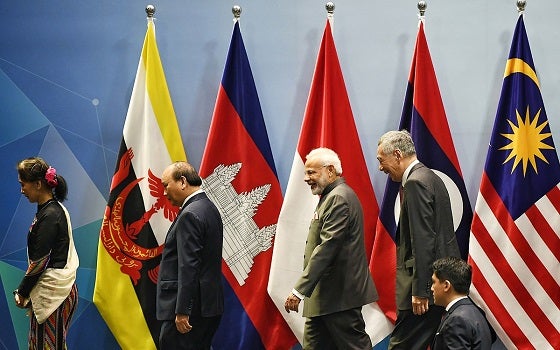
| Title: | 541 : Foreign Policy and Voting Pattern in India |
| Author/s: | Amit Ranjan |
| Abstract: | For almost all Indian voters, foreign policy is not an important determinant in the elections. However, the issues related to it do, to a certain extent, influence decisions of a number of voters. This is especially in the states which border one of the neighbouring countries. In some states, foreign policy-related issues have almost turned into a significant domestic issue which affect the day to day lives of people so it determines the voting behaviour of a large number of people living there. This paper looks at the impact of foreign policy-related issues on voters. It argues that such issues influence voters only when they take on a local angle and affect their lives. |
| Date: | 8 March 2019 |
| Read More |
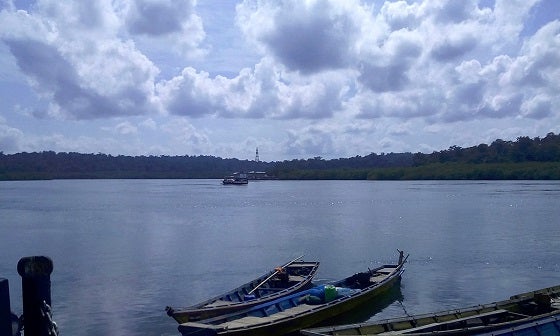
| Title: | 540 : Prime Minister Narendra Modi in the Andamans: India ends the Neglect of the Strategic Island Chain |
| Author/s: | Chilamkuri Raja Mohan, Ankush Ajay Wagle |
| Abstract: | Indian Prime Minister Narendra Modi made his first visit to the Andaman and Nicobar islands from 29 to 30 December 2018. Modi’s visit puts a spotlight on the belated development of the strategically important island territory. Since 2014, when the National Democratic Alliance government came into power, Delhi has made incremental advances in building infrastructure, strengthening connectivity, promoting trade and tourism and boosting the security presence on the island chain. |
| Date: | 8 March 2019 |
| Read More |
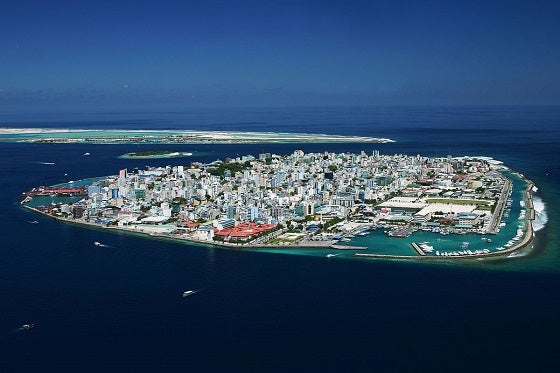
| Title: | 539 : The Maldives: Resolution of Constitutional Conundrum? Not Just Yet! |
| Author/s: | Iftekhar Ahmed Chowdhury |
| Abstract: | For a tiny, picturesque and homogenous country, the Maldives has experienced volatile politics in modern times. It has had more constitutions than any other South Asian state, most of which have been tried and proven failed. All organs of governance – the executive, the parliament, the bureaucracy as well as the courts – have contributed to its tumultuous politics. Its strategic location in the Indian Ocean has attracted the attention of the main regional protagonists, India and China, which impacts on its domestic politics as its external shell of protection is weak. It is also susceptible to the vagaries of climate change, which calls for concerted and coherent policies that embattled governments are unable to provide. The presidential elections ushered change in 2018, and now parliamentary elections are due on 6 April 2019. A way out of political imbroglio is sought, but the possibility of success in this regard is small. |
| Date: | 7 March 2019 |
| Read More |
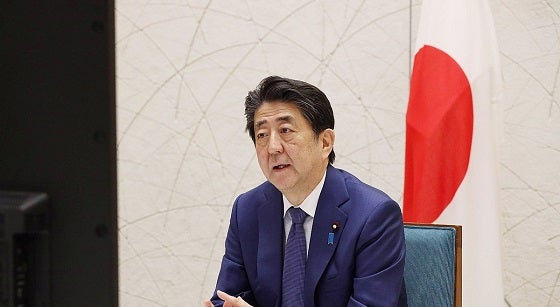
| Title: | 538 : Japan as the Chair of the G20 – Implications for South Asia |
| Author/s: | Duvvuri Subbarao and Rupakjyoti Borah |
| Abstract: | Japan has become the Chair of the G20 for 2019. The G20 has no permanent secretariat and has no specific mandate beyond discussing the most critical issues facing the global economy. As such, it has now become standard practice for the chair country to set the agenda for the year of its chairmanship. Japan has set an ambitious agenda, including free trade, infrastructure for development, climate change and the impact of ageing populations. The headway that Japan makes in securing global cooperation in addressing these compelling challenges will have profound implications for South Asia. |
| Date: | 7 March 2019 |
| Read More |

| Title: | 537 : India’s Economy – Concerns and the Road Ahead |
| Author/s: | S Narayan |
| Abstract: | The financial markets in India are under stress due to defaults in several companies and this is affecting the availability of credit for the goods and services sectors. Lenders have become risk averse. At the same time, consumption demand in small towns is growing. There are also new industries and technologies that are attracting investments, thereby providing a fillip to the India economy. However, the new government would have to meet the many challenges to put the economy back on an even keel. |
| Date: | 25 February 2019 |
| Read More |

| Title: | 536 : Does Pulwama jeopardise Pakistan’s potential IMF deal? |
| Author/s: | Rani D Mullen and Duvvuri Subbarao |
| Abstract: | Is it possible that Pakistan has scored an own-goal by allegedly sponsoring the 14 February 2019 terrorist attack on Indian security forces in Pulwama, Kashmir, which took 40 lives? Since the Pakistan-based terrorist group Jaish-e-Muhammed has claimed responsibility for the attack, India has vowed to work on isolating Pakistan economically and diplomatically as a state sponsor of terrorism. This comes at a time when Pakistan is facing an external payments crisis, with only US$7 billion (S$9.5 billion) in reserves – less than two months of import cover – and is in desperate need of a bailout by the International Monetary Fund (IMF). Yet, if India succeeds in convincing major shareholders of the IMF – the United States, the European countries, Japan and China – and international organisations like the terror financing watchdog, the Financial Action Task Force, of Pakistan state’s involvement in these attacks, an IMF bailout of Pakistan, which looked like a distinct possibility just a couple of weeks ago after the meeting between Pakistani Prime Minister Imran Khan and IMF Managing Director Christine Lagarde, could be in jeopardy. Unless Pakistan takes significant steps to convince the G7 and other countries that it is serious about combatting home-grown terrorism, it risks going over the precipice. |
| Date: | 25 February 2019 |
| Read More |
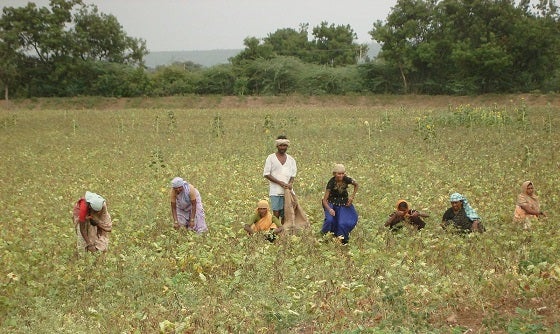
| Title: | 535 : Zero Budget Natural Farming in Andhra Pradesh: Towards Sustainable and Profitable Farming |
| Author/s: | Amitendu Palit, Sarin Paraparakath, Trishala Kaviti and Sriharsha Chilla |
| Abstract: | Introduced a little more than three years ago, the Zero Budget Natural Farming (ZBNF) programme in the Indian state of Andhra Pradesh has attracted considerable international attention. The ZBNF is a farming practice that avoids the use of external chemical inputs and relies on drawing inputs from nature itself. Implemented by the Rythu Sadhikara Samastha, a not-for-profit company of the government of Andhra Pradesh, the ZBNF has been adopted by more than 163,000 farmers in 9,722 villages across all 13 districts of the state. Initial results on the adoption of the ZBNF practices in the state are encouraging in terms of higher net incomes for farmers and greater crop yield. The key implementation challenge is to maintain the rate of progress on its wider adoption by encouraging farmers to switch from conventional chemical input-based farming to the ‘natural’ ZBNF practice. |
| Date: | 8 February 2019 |
| Read More |
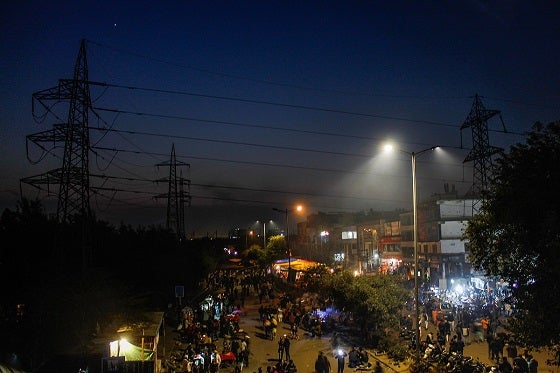
| Title: | 534 : Citizenship (Amendment) Bill: Re-Defining Identity |
| Author/s: | Amit Ranjan |
| Abstract: | The Citizenship (Amendment) Bill is seen in Assam as against the letters and spirit of Clause 6 of the Assam Accord. The local population from the state and other parts of northeast India feel that, with this bill coming into effect, the region will be flooded with a large number of immigrants, which will dilute their culture and identity. On the other hand, the Union government of India argues that the persecuted religious minorities from the neighbouring countries have nowhere to go except India. It has also been clarified that those people can go to any state of India, and not only to Assam. However, given the history of immigration and tensions due to it, a section of Assamese and people from the neighbouring states are not convinced by this argument. |
| Date: | 25 January 2019 |
| Read More |
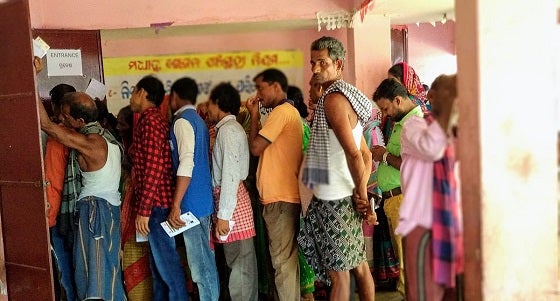
| Title: | 533 : The Indian Elections and the Rural Sector |
| Author/s: | Diego Maiorano and Vani Swarupa Murali |
| Abstract: | The increasing visibility of farmer distress towards the end of 2018 and the results from the recent state elections reveal the significance of the farmer vote. Looking at both the farmer protests and the caste protests, in relation to Prime Minister Modi’s promises, reveal the causes behind the recent farmer protests. A growing attempt to win over the farmers is predicted in the run up to the 2019 general election. |
| Date: | 19 January 2019 |
| Read More |
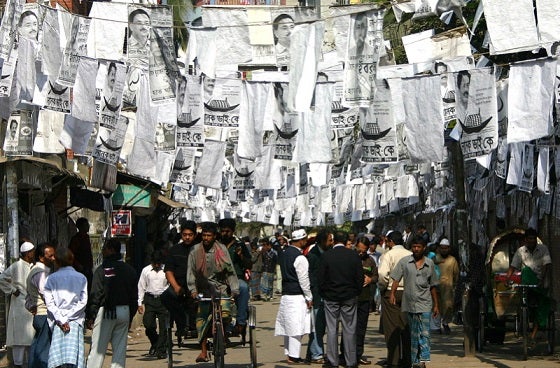
| Title: | 532 : Polls in Bangladesh: Implications for Future Theory and Practice of Electoral Politics |
| Author/s: | Iftekhar Ahmed Chowdhury |
| Abstract: | The dust from the elections in Bangladesh of 30 December 2018 is yet to be settled. This paper analyses the lead-up to and the conduct of the polls, including the results and the implications. Yet, it is already apparent that these will not only have consequences for Bangladesh’s immediate and future civic evolution, but could also provide interesting theoretical inputs into the understanding of post-colonial political debate. |
| Date: | 14 January 2019 |
| Read More |
Load more


